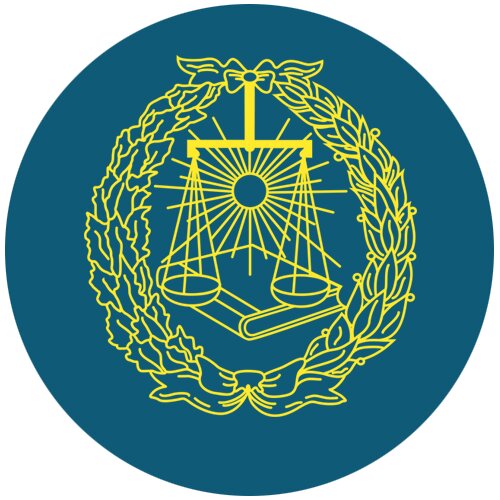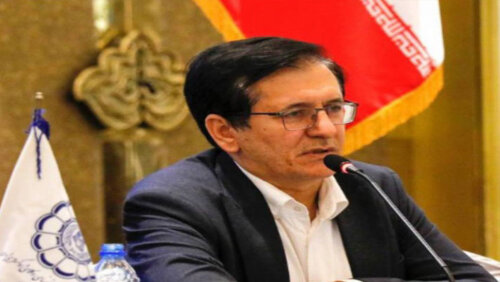Best Constitutional Law Lawyers in Iran
Share your needs with us, get contacted by law firms.
Free. Takes 2 min.
Or refine your search by selecting a city:
List of the best lawyers in Iran
About Constitutional Law in Iran
Constitutional Law in Iran refers to the legal principles and rules that govern the structure of the Iranian government and the relationship between the government and its citizens. The Constitution of the Islamic Republic of Iran, adopted in 1979, outlines the form of government, the rights and responsibilities of citizens, and the power distribution between various branches of government.
Why You May Need a Lawyer
You may need a lawyer in the field of Constitutional Law in Iran if you are facing issues related to government actions violating your constitutional rights, if you are involved in a constitutional challenge, or if you need legal advice on matters such as freedom of speech, religious freedom, or equal protection under the law.
Local Laws Overview
In Iran, the Constitution is the supreme law of the land and all other laws must conform to its provisions. The Constitution establishes the principles of Islamic governance, the separation of powers, and the protection of individual rights. Some key aspects of local laws relevant to Constitutional Law in Iran include the Guardian Council's role in interpreting the Constitution, the powers of the President and Supreme Leader, and the jurisdiction of the Islamic Revolutionary Courts.
Frequently Asked Questions
1. What are the fundamental rights guaranteed by the Iranian Constitution?
The Iranian Constitution includes provisions for freedom of speech, press, religion, assembly, and association. It also guarantees the right to due process, equality before the law, and the right to privacy.
2. How can I challenge a law or government action that I believe violates the Constitution?
You can file a constitutional complaint with the Iranian courts, challenging the constitutionality of the law or action in question. You may also seek the assistance of a lawyer specializing in Constitutional Law.
3. What is the role of the Guardian Council in interpreting the Constitution?
The Guardian Council is tasked with ensuring that all laws passed by the Iranian parliament are in line with Islamic principles and the Constitution. It plays a key role in interpreting the Constitution and can reject legislation it deems unconstitutional.
4. Are non-Muslims afforded the same rights under the Iranian Constitution?
Yes, the Iranian Constitution guarantees equal rights to all citizens, regardless of their religious beliefs. However, Islamic law is the basis of legislation in Iran, which can sometimes lead to unequal treatment of non-Muslims in certain legal matters.
5. What is the process for amending the Iranian Constitution?
Amending the Iranian Constitution is a complex process that involves approval by a two-thirds majority of the parliament, followed by a public referendum. The Guardian Council also plays a role in reviewing proposed amendments for compatibility with Islamic principles.
6. Can the Supreme Leader be held accountable under the Iranian Constitution?
The Iranian Constitution grants the Supreme Leader immunity from legal prosecution. However, his actions are subject to review by the Assembly of Experts, which has the power to dismiss the Supreme Leader if deemed necessary.
7. Is freedom of the press protected under the Iranian Constitution?
While the Iranian Constitution guarantees freedom of the press, there are legal restrictions on what can be published, particularly regarding matters deemed to be against Islamic values or national security.
8. How does the Iranian Constitution address gender equality?
The Iranian Constitution recognizes the equality of men and women in all areas of life, but some laws and practices in Iran may not fully reflect this principle. Women's rights activists continue to advocate for greater gender equality in the legal system.
9. Can foreigners challenge government actions under the Iranian Constitution?
Foreigners residing in Iran are also protected by the Iranian Constitution and can challenge government actions that violate their rights. However, the legal process may be more complicated for non-citizens.
10. How can I learn more about my rights under the Iranian Constitution?
You can consult legal experts specializing in Constitutional Law in Iran or refer to official sources such as the Iranian parliament's website, which provides information on the Constitution and related laws.
Additional Resources
For more information on Constitutional Law in Iran, you can also reach out to the Iranian Bar Association, the Iranian Judiciary, or human rights organizations such as Amnesty International or Human Rights Watch.
Next Steps
If you require legal assistance in Constitutional Law in Iran, consider seeking advice from a qualified lawyer specializing in this field. They can provide guidance on your rights, the legal process, and potential remedies for any constitutional violations you may have experienced.
Lawzana helps you find the best lawyers and law firms in Iran through a curated and pre-screened list of qualified legal professionals. Our platform offers rankings and detailed profiles of attorneys and law firms, allowing you to compare based on practice areas, including Constitutional Law, experience, and client feedback.
Each profile includes a description of the firm's areas of practice, client reviews, team members and partners, year of establishment, spoken languages, office locations, contact information, social media presence, and any published articles or resources. Most firms on our platform speak English and are experienced in both local and international legal matters.
Get a quote from top-rated law firms in Iran — quickly, securely, and without unnecessary hassle.
Disclaimer:
The information provided on this page is for general informational purposes only and does not constitute legal advice. While we strive to ensure the accuracy and relevance of the content, legal information may change over time, and interpretations of the law can vary. You should always consult with a qualified legal professional for advice specific to your situation.
We disclaim all liability for actions taken or not taken based on the content of this page. If you believe any information is incorrect or outdated, please contact us, and we will review and update it where appropriate.
Browse constitutional law law firms by city in Iran
Refine your search by selecting a city.










